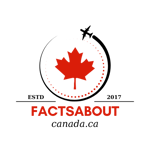A Journey Through the World of First Nations in Canada
Canada, often associated with its iconic maple leaf, national sport of hockey, and breathtaking wilderness, holds a far deeper and more intricate story within its borders – the story of the First Nations. These are the original inhabitants of the land, with histories stretching back millennia before European contact.
Let us embark on a journey through the fascinating world of First Nations in Canada, exploring their diverse communities, rich cultural traditions, complex history, and enduring resilience.
The Many Faces of First Nations
Canada is home to over 600 distinct First Nations communities, each possessing a unique cultural tapestry woven from language, traditions, and deep connections to the land. These communities are not confined to remote regions; they thrive in bustling cities like Toronto and Vancouver, as well as in the vast northern landscapes. The diversity among First Nations is immense, encompassing a wide array of languages, customs, and spiritual beliefs.
Languages: Over 50 Indigenous languages are spoken in Canada, including Cree, Ojibway, Inuktitut, and many others. These languages are more than just means of communication; they are vessels of cultural heritage, knowledge, and identity. Efforts to revitalize and preserve these languages are gaining momentum, recognizing their vital role in maintaining cultural continuity.
A Complex and Enduring History
The history of First Nations in Canada is a tapestry interwoven with threads of resilience, adversity, and cultural survival. The arrival of European settlers in the 16th century brought about significant changes, including the introduction of new diseases, disruptions to traditional ways of life, and the imposition of colonial systems.
Treaties, often negotiated under unequal power dynamics, were signed between First Nations and the Canadian government. These treaties aimed to define rights and responsibilities, but their implementation has been fraught with challenges and broken promises.
One of the darkest chapters in Canadian history is the residential school system, a government-sponsored program that forcibly removed Indigenous children from their families and communities in an attempt to assimilate them into European culture. The legacy of residential schools continues to affect First Nations individuals and communities, with intergenerational trauma and cultural loss persisting to this day.
Despite the historical injustices and ongoing challenges, First Nations people have demonstrated remarkable resilience and strength. They have preserved their cultural traditions, languages, and spiritual practices, passing them down through generations. Today, there is a growing movement towards reconciliation, truth-telling, and the recognition of Indigenous rights and self-determination.
Rich Cultural Traditions
First Nations cultures are deeply rooted in a profound connection to the land. Traditional knowledge systems, honed over millennia, offer valuable insights into sustainable living, environmental stewardship, and harmonious coexistence with nature. As the world grapples with climate change and environmental degradation, Indigenous ecological knowledge is increasingly recognized as a source of wisdom and guidance.
The artistic expressions of First Nations people are vibrant and diverse. From the intricate carvings of West Coast totem poles to the colorful beadwork of the Plains nations, First Nations artists create stunning works that reflect their cultural heritage and contemporary experiences. Indigenous art is gaining recognition worldwide for its beauty, complexity, and cultural significance.
Shaping Canada’s Future
First Nations people are not merely a part of Canada’s past; they are active participants in shaping its present and future. Young Indigenous leaders are making their mark in various fields, including politics, science, the arts, and activism. They are challenging stereotypes, advocating for Indigenous rights, and promoting reconciliation.
The contributions of First Nations people to Canadian society are numerous and diverse. They are entrepreneurs, educators, scientists, artists, and community leaders. Their perspectives and experiences enrich Canadian society and contribute to a more inclusive and equitable nation.
A Story of Resilience and Hope
The story of First Nations in Canada is one of resilience, creativity, and unwavering hope for the future. It is a story of cultural survival, adaptation, and the ongoing pursuit of self-determination. As Canada continues its journey towards reconciliation and decolonization, the First Nations will play a pivotal role in shaping the country’s identity, values, and future direction.
By understanding and appreciating the rich tapestry of First Nations cultures, we can all contribute to a more inclusive, equitable, and just society. Let us embrace the opportunity to learn from Indigenous knowledge, support Indigenous-led initiatives, and work together to create a future where all Canadians can thrive and prosper.


Christina -
I am very much pro first name, so thank you for posting this article on the story of the First Nations, especially now with Canada Day around the corner.